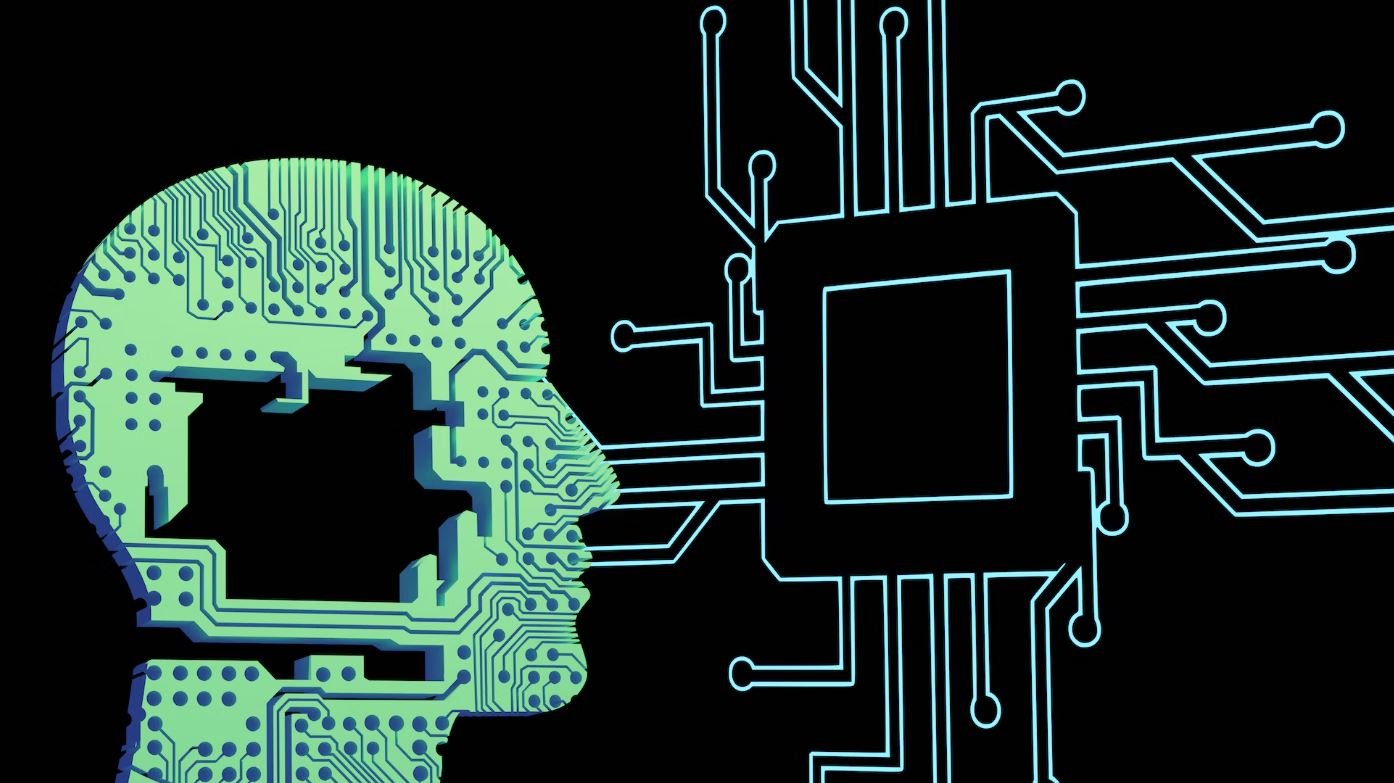What AI Apps Are Available
Artificial Intelligence (AI) has revolutionized the way we interact with technology. From personal assistants to image recognition, AI apps are becoming increasingly popular and diverse. In this article, we will explore some of the most noteworthy AI apps available today.
Key Takeaways:
- AI apps offer a wide range of functionalities, from virtual assistants to language translation.
- They rely on AI algorithms to process data and provide intelligent responses.
- AI apps have significant potential for productivity improvement and convenience.
Virtual Assistants
Virtual assistants like Siri, Alexa, and Google Assistant have become household names. These AI-powered apps use natural language processing to understand and respond to user queries. They can perform tasks like setting reminders, searching the web, and even controlling smart home devices. With advanced machine learning capabilities, these virtual assistants continue to evolve and improve their understanding of user preferences and context. *Did you know that Siri was introduced by Apple in 2011?*
Language Translation
AI apps have made it easier than ever to overcome language barriers. Apps like Google Translate and iTranslate leverage AI algorithms to translate text and speech between different languages. They can help users understand and communicate in foreign languages, whether for travel, business, or personal use. These apps continuously learn from user interactions to enhance translation accuracy and expand their language libraries. *Google Translate supports over 100 languages!*
Image Recognition
AI-powered image recognition apps have become particularly popular. Google Lens and Microsoft Pix utilize deep learning algorithms to analyze images captured by smartphones. They can identify objects, landmarks, and even extract text from images. These apps provide users with valuable information about their surroundings, making them useful for tasks like product identification, sightseeing, or translating signs. *Did you know that Google Lens can recognize famous artworks and provide detailed information about them?*
AI Apps for Health
AI is also making a significant impact in healthcare. There are several AI apps available that aid in disease diagnosis, symptom analysis, and medication management. For example, Babylon is an AI-powered app that offers virtual consultations with doctors, providing users with quick medical advice and potentially reducing the strain on healthcare systems. These AI apps democratize access to medical expertise and improve healthcare outcomes. *Babylon’s AI technology has surpassed human doctors in a written exam!*
Table: Popular AI Apps
| App | Functionality |
|---|---|
| Siri | Virtual Assistant |
| Alexa | Virtual Assistant |
| Google Assistant | Virtual Assistant |
| Google Translate | Language Translation |
| iTranslate | Language Translation |
| Google Lens | Image Recognition |
| Microsoft Pix | Image Recognition |
| Babylon | Healthcare |
Conclusion
AI apps have transformed the way we interact with technology and provide a wide range of functionalities to improve productivity and convenience. From virtual assistants to language translation and image recognition, there is an AI app for almost every need. As AI technology continues to advance, we can expect even more innovative applications that streamline our daily lives and push the boundaries of what is possible.

Common Misconceptions
Misconception 1: AI can completely replace human intelligence
One common misconception about AI apps is that they have the ability to completely replace human intelligence. While AI technology has made significant advancements in various fields, it is important to note that it is not capable of replicating all aspects of human intelligence.
- AI can perform repetitive tasks with higher accuracy and efficiency than humans.
- AI lacks creativity and emotional intelligence, which are essential for tasks involving subjective decision-making.
- AI apps require human oversight to ensure ethical and unbiased decision-making.
Misconception 2: AI apps are only useful for large businesses
Another common misconception is that AI apps are exclusively beneficial for large businesses with vast resources. However, this is not true as AI technology is becoming increasingly accessible and applicable to businesses of all sizes.
- Small businesses can leverage AI apps to automate repetitive tasks and streamline operations.
- AI-powered chatbots can enhance customer service for businesses of any size.
- AI apps can help optimize marketing strategies, regardless of the scale of the business.
Misconception 3: AI apps are only for tech-savvy individuals
Many people mistakenly believe that AI apps are only meant for tech-savvy individuals who have a deep understanding of complex algorithms. However, AI technology has been made more user-friendly and accessible over time, allowing individuals without a technical background to benefit from AI apps.
- AI apps now come with intuitive interfaces that require minimal technical knowledge to operate.
- Training and tutorials are available to help users understand and utilize AI apps effectively.
- AI apps are designed to automate complex processes, making them easy to use and understand for non-technical users.
Misconception 4: AI apps will replace all jobs
There is a fear among many that AI apps will lead to widespread job losses and unemployment as they take over human roles. However, this is an exaggeration of the situation as AI technology is intended to augment human capabilities rather than replace them entirely.
- AI apps can handle repetitive and mundane tasks, allowing humans to focus on higher-level and more complex tasks.
- New job opportunities will emerge as AI technology evolves, requiring new skills and expertise.
- AI apps can complement human work by providing insights and recommendations, but human decision-making is still essential.
Misconception 5: AI apps are always accurate and reliable
Lastly, there is a common misconception that AI apps are infallible and always provide accurate and reliable results. However, like any other technology, AI apps are susceptible to errors and limitations.
- AI apps heavily rely on the quality of the data they are trained on, which can lead to biased or flawed predictions.
- AI apps may encounter difficulties when faced with unfamiliar scenarios or unpredicted circumstances.
- Regular updates and improvements are needed to ensure the accuracy and reliability of AI apps.

Artificial Intelligence in Healthcare
With the advancements in artificial intelligence (AI), the healthcare industry has seen a significant transformation. From improving diagnostics to personalized treatment plans, AI applications have revolutionized patient care. The table below showcases various AI apps available in the healthcare sector:
| AI App | Functionality | Benefits |
|---|---|---|
| IBM Watson | Provides clinical decision support and data analysis | Accelerates diagnosis and treatment decision-making |
| PathAI | Automates pathology analysis for faster and more accurate results | Reduces diagnostic errors and enhances patient outcomes |
| Butterfly iQ | AI-powered ultrasound device for portable imaging | Increases accessibility to imaging technology in remote areas |
Artificial Intelligence in Finance
In the finance industry, AI applications have streamlined processes and enabled predictive analytics. The following table highlights some AI apps utilized in the financial sector:
| AI App | Functionality | Benefits |
|---|---|---|
| Personal finance chatbots | Provide automated financial advice and budgeting assistance | Improves financial literacy and promotes better money management |
| ZestFinance | Utilizes AI algorithms to assess creditworthiness | Enhances accuracy in credit decisions and reduces lending risks |
| AlphaSense | Facilitates advanced contextual search for financial data | Enables faster and more accurate financial research |
Artificial Intelligence in Customer Service
Customer service departments have integrated AI to improve efficiency and enhance user experiences. The table below presents some AI applications employed in customer service:
| AI App | Functionality | Benefits |
|---|---|---|
| Chatbots | Provide automated responses and assist with inquiries | Reduces customer wait times and improves service availability |
| Virtual Customer Assistants | Offer personalized support and recommendations | Enhances customer engagement and satisfaction |
| Sentiment Analysis Tools | Analyzes customer feedback for sentiment and trends | Helps identify areas for improving products or services |
Artificial Intelligence in Transportation
AI technology is playing a crucial role in revolutionizing the transportation industry. The table below showcases AI apps deployed in transportation:
| AI App | Functionality | Benefits |
|---|---|---|
| Autonomous Vehicles | Self-driving cars and trucks | Enhances road safety and reduces human error |
| Intelligent Traffic Management Systems | Optimizes traffic flow and reduces congestion | Improves transportation efficiency and reduces travel times |
| Smart Parking Solutions | Uses AI algorithms to help drivers find available parking spots | Reduces parking congestion and improves logistical efficiency |
Artificial Intelligence in Education
AI has been increasingly utilized in the education sector to enhance learning experiences. The following table highlights AI apps in education:
| AI App | Functionality | Benefits |
|---|---|---|
| ALEKS | Adaptive learning platform for personalized education | Promotes individualized learning and improves student outcomes |
| Sophia | Chatbot tutor for interactive learning and assistance | Provides immediate feedback and support to students |
| Content Intelligence Platforms | Automates content creation and customization for diverse learners | Improves efficiency in delivering tailored educational materials |
AI applications have significantly impacted various industries, including healthcare, finance, customer service, transportation, and education. These innovative AI apps have brought forth numerous benefits such as improved diagnosis accuracy, enhanced financial decision-making, streamlined customer support, advanced transportation systems, and personalized education. As the potential of AI continues to expand, we can expect further developments and advancements that will shape our future.
Frequently Asked Questions
What AI Apps are available for consumers?
There are plenty of AI apps available for consumers across various categories. Some popular ones include voice assistants like Siri, Google Assistant, and Amazon Alexa, virtual pet apps like Tamagotchi, language translation apps like Google Translate, and smart home automation apps like Nest.
Do AI apps exist for educational purposes?
Yes, there are several AI apps designed specifically for educational purposes. These apps can help with learning languages, solving math problems, understanding scientific concepts, and improving critical thinking skills.
Are there any AI apps for healthcare?
Absolutely! AI apps are being developed and used in the healthcare industry to assist in diagnosing diseases, providing personalized treatment recommendations, monitoring patients’ health conditions, and even offering emotional support.
Can AI apps help with productivity?
Yes, many AI apps are designed to improve productivity. These apps can help with tasks such as scheduling, time management, document organization, and even automating repetitive workflows.
Are there AI apps for enhancing personal finance?
Certainly! Several AI-powered apps can assist in managing personal finances, budgeting, tracking expenses, offering investment advice, and providing insights into saving money.
Do AI apps exist for entertainment purposes?
Yes, the entertainment industry has embraced AI technology, leading to the development of AI apps for various purposes. These can include music recommendation apps, AI-powered video games, personalized movie and TV show recommendations, and virtual reality experiences.
Are there AI apps available for improving mental health?
Indeed! AI apps are being utilized to provide mental health support, such as meditation and mindfulness apps, mood tracking apps, therapy chatbots, and emotion recognition tools.
Can AI apps assist in language learning?
Yes, there are AI-powered language learning apps that can help users practice vocabulary, grammar, and pronunciation. Some apps even use speech recognition and provide real-time feedback to improve language skills.
Do AI apps exist for improving travel experiences?
Certainly! AI apps are being utilized to enhance travel experiences. These can include virtual travel assistants, language translation apps, personalized travel recommendations, and even apps that can predict flight delays.
Are there AI apps available for improving fitness?
Absolutely! AI-powered fitness apps can assist with tracking workouts, suggesting personalized exercise routines, monitoring heart rate and calories burned, and providing feedback to help achieve fitness goals.





